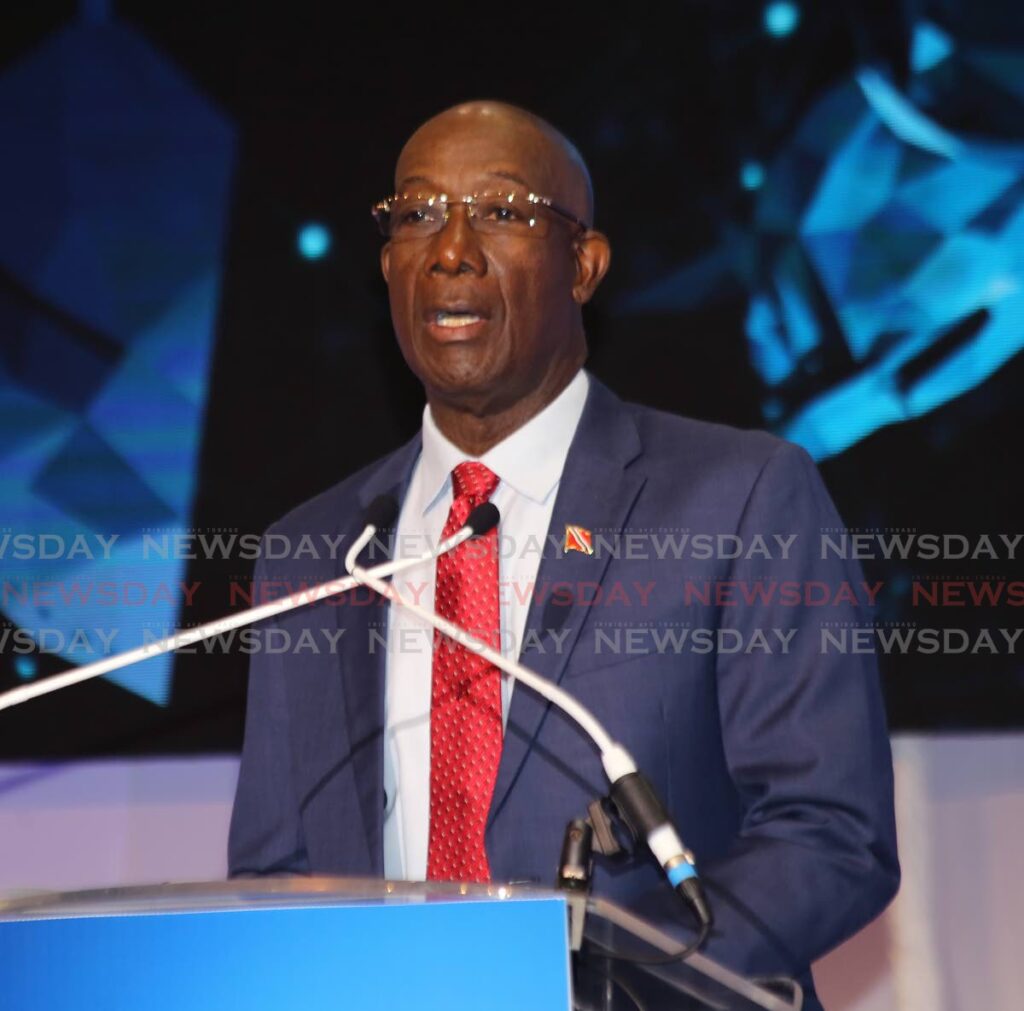Prime Minister calls for patience during wage negotiations: Don't overreact

While he has noted the dissatisfaction of trade unionists over a proposed salary increase of two per cent, the Prime Minister has called on workers to be patient and remain calm.
On May 16, during the debate on the Variation of Appropriation) (Financial Year 2022) Bill, 2022, Finance Minister Colm Imbert announced TT achieved a surplus of $1.98 billion at the end of April. He said one of the things the government would do with the increased revenue was to pay increased wages to public servants once negotiations between the unions and the Chief Personnel Officer (CPO) were concluded.
On Thursday, CPO Dr Daryl Dindial offered hourly, daily and weekly-rated workers of the Central Government, the Tobago House of Assembly and municipal corporations a two per cent salary increase over an eight-year period spanning 2014 and 2021.
Various trade unionists have rejected the offer and have promised to stage public protests to express their dissatisfaction, noting that "strategies" would be used to make their point.
On Saturday, staff at the San Fernando General Hospital staged a protest against the CPO's offer.
Responding to questions from reporters at the VIP Lounge of the Piarco International Airport shortly after his return from Guyana on Sunday afternoon, Dr Rowley called for cooler heads to prevail among public servants and their trade unions.
He said despite the frustration public servants may feel, he urged them to consider that there were no job cuts throughout the covid19 pandemic.
He added that while the government would have liked to satisfy the requests of the trade unions, they were careful to balance any wage increase with public debt.
"Clearly what has been offered has offended some people but let's have a quick look at what it is, because we did, from time to time, have to say to the population, particularly the public servants, given what the government has done and what the government is doing, try and not get derailed by wanting more from less.
"We have a little bit more now and therefore a little bit more can provide a little bit more.
"Reason is required and patience is an essential ingredient.
"I think you would want us to continue keeping people in jobs, you would want us to continue looking for opportunity for us to have an improved payment, but let's not get too carried away with this."
Rowley also stressed that public servants should not look to the current price of oil as an indicator of whether their demands could be met, noting the unpredictable nature of the oil market.
He added that cautious long-term planning were necessary to ensure stability for the public servants.
"The oil market overnight could change and, therefore, if we commit ourselves to making payments based on what prevails now, and in three months, or two months, or six months, the price drops to $60 or $50 we would have worsened our position."
Citing figures provided to him from the CPO through the Minister of Finance, Rowley said with no increase the current wage bill for public servants was $8.7 billion.
At a two per cent increase Rowley said there would be an additional $175 million with a backpay bill of $411 million.
He also gave a breakdown of projected increases at four and ten per cent.
"If per chance we get to a four per cent increase where we are currently committed to $8.7 billion, we'll be talking about backpay a revision of $1.8 billion and a running cost of increase $588 million that's four percent.
"At ten per cent we'll be talking about a backpay of $4.5 billion and an increased running cost of $1.1 billion.
"(If) you put that against the recent report of a slight increase in the revenues for the Minister of Finance against the background of the huge debt that we had run up for covid and pre-covid, you come to a conclusion as to whether shutting down the country or not is the appropriate response to these circumstances."
Contacted for comment Public Services Association (PSA) president Leroy Baptiste rejected Rowley's reasoning for the two per cent increase and argued that preserving jobs was a separate issue from giving workers what they were entitled to.
"I am not sympathetic with him at all because I have seen him send home people left, right and centre and people are fearful of losing their jobs.
"More than that, one thing has nothing to do with the other.
"I am talking about workers, a person without a job that's a whole different ballgame we'll have to fight for that."
Referring to Rowley's calls for patience, Baptiste described the government's two per cent officer as "disrespectful" and said Rowley was in no position to ask anything of workers.
Newsday also contacted secretary general of the National Trade Union Centre (NATUC) Michael Annisette who dismissed Rowley's reasoning.
Annisette contended that he was not convinced that government had explored all options to increase workers' wages and described focus on job security as a veiled threat.
"That is a kind of threat that has been used by employers to continue with the wage restraint.
"The very same government is prepared to put people on contract and pay them much more than the market rate than what the collective agreeement provides for in order to attract the kind of talent that is necessary.
"When we see contractors getting paid off with all their debts and we haven't found money to pay workers. We can find mechanisms and processes to find resolutions we can find a balance between wage increases and other benefits that will enhance workers."


Comments
"Prime Minister calls for patience during wage negotiations: Don’t overreact"